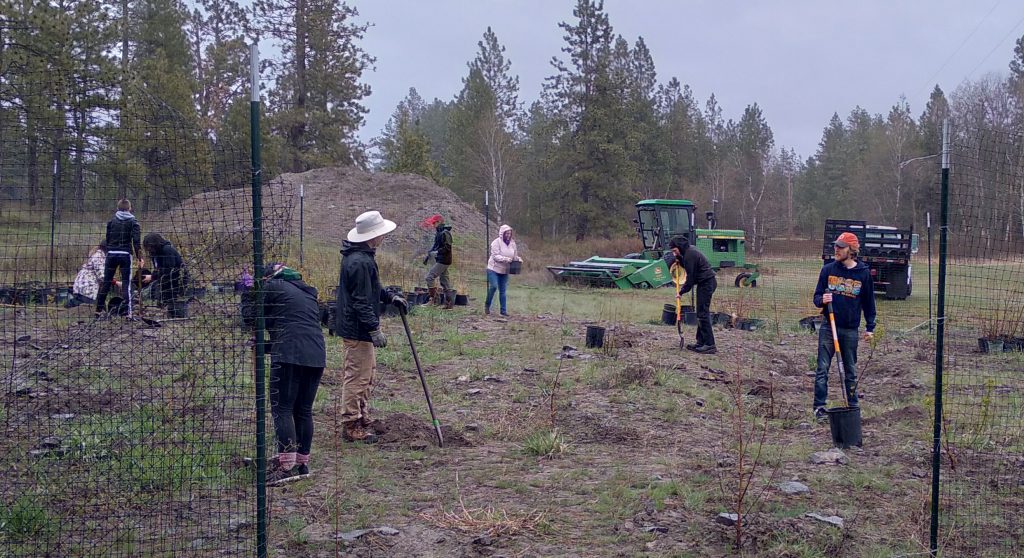In recent years, Marshall Creek, a once vibrant and diverse wetland located just a few miles east of Cheney, has suffered from a host of development-related challenges, including the loss of native trees that once boosted water quality and provided home to birds, mammals, and insects.
Now the trees are making a comeback, thanks in part to Christopher Kirby, a professor of philosophy at EWU, and his students.
Kirby, who teaches environmental ethics, recently encouraged those taking his course — among them three students working on their senior capstone courses — to partner with The Lands Council of Spokane on what the council is calling “a massive restoration transformation” at Marshall Creek.
On Saturday, April 30, the students joined with other volunteers to plant some fifty native-species trees along the creek, all part of the Lands Council’s ongoing effort to slow erosion, provide habitat, and otherwise revitalize this once rich and biodiverse wetland.
Kirby says his urging of his students’ participation is part of his advocacy of “experiential learning,” a form of instruction that often leads him to include a service-learning component in his classes. This year, Kirby has restructured his environmental ethics class to make service learning an even bigger component, because, he says, past classes have been “just blown away by” the real-world implications of their experiences.

“I think that’s happening more and more now. I’m excited to be a university professor with this younger generation because, as I put it, they give a damn. They want to make a difference,” says Kirby.
And make a difference they have, says Kat Hall, restoration program director for the Lands Council: “It’s a really great way to put restoration into practice. By enriching the area around Marshall Creek, it shows the students tangible results, which gives them fulfillment.”
Initially, Kirby thought only his three capstone project students would be involved in the Marshall Creek restoration. Instead, Hall suggested a class-wide tree planting. Kirby jumped at the chance to involve all his students. “That’s what that Saturday was all about getting the whole class out there, together, as a group, to plant some trees,” he says.
Kirby, who created the environmental ethics course offers it every other spring. This partnership with The Lands Council is one of four attached to the community engagement assignment in this Environmental Ethics course. Students who take the course will also have opportunities to work with The Spokane Riverkeeper, 350 Spokane, and Growing Neighbors.
There are ten registered students in the class. But Kirby has several students who are sitting in, because there’s so much interest and they couldn’t take the class officially due to other reasons. “Since it’s a public university, I say the more the merrier,” says Kirby.

